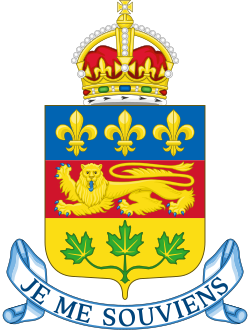This article needs additional citations for verification .(October 2025) |
| History of Quebec |
|---|
 |
| Timeline |
| Territory of Quebec |
|
| Topics |
This section of the Timeline of Quebec history concerns the events between the Quiet Revolution and the patriation of the British North America Act.